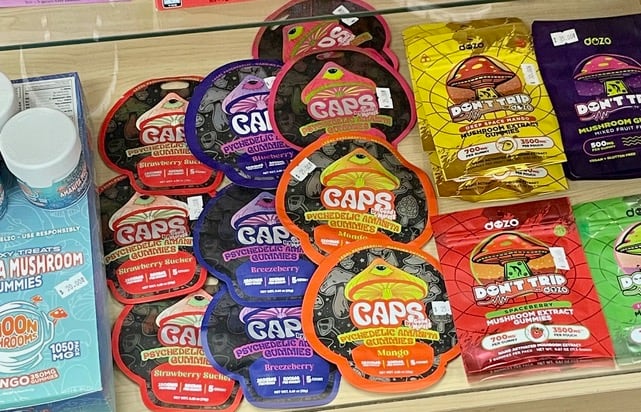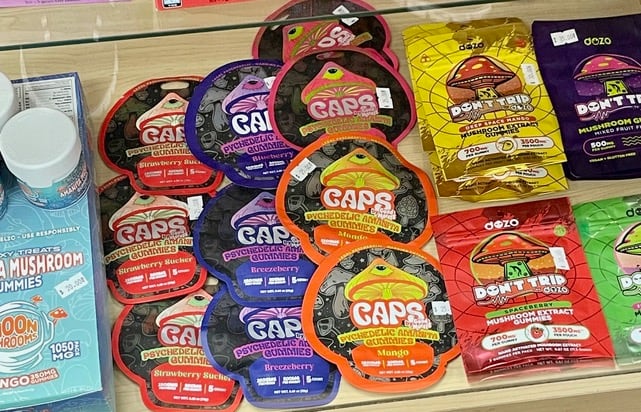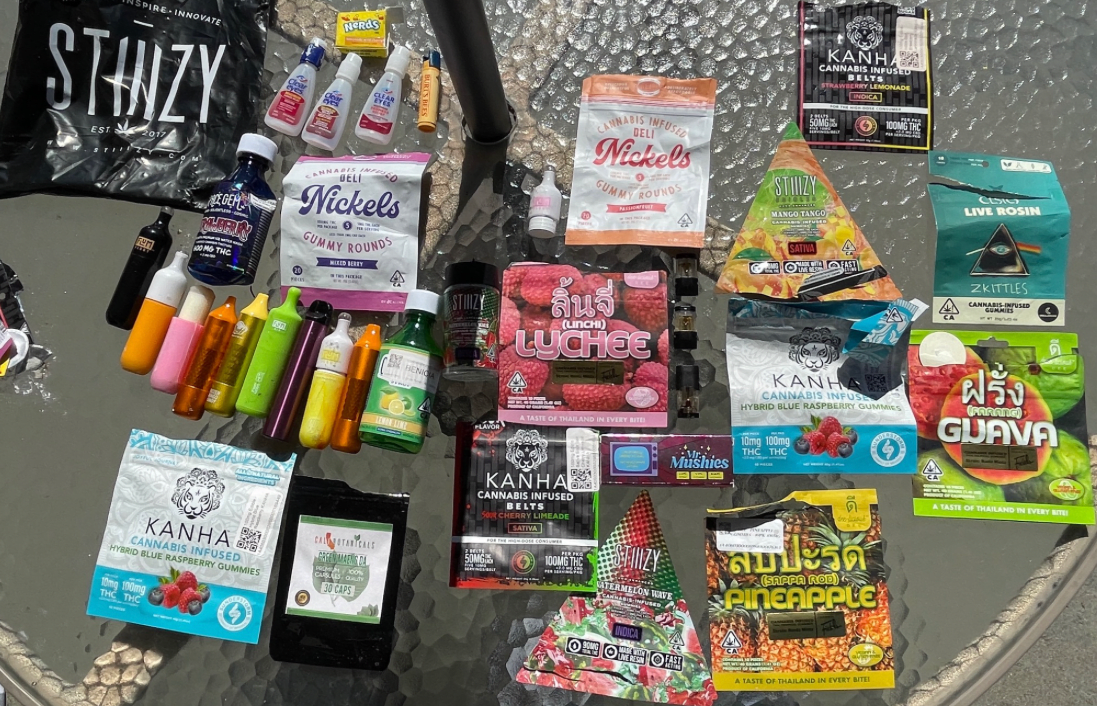
Urge CA Assembly Members and Senate Leaders to Vote NO on SB-58
Oppose SB-58 as currently written - let's get it right from the start
Urge your reps to please get any decriminalization of psychedelics right from the start
We know and appreciate the potential healing benefits of psychedelics. We want to see an end to drug war policies. We simply believe Californians deserve a safe and responsible policy approach. YouthCAN (Youth Community Action Network) is a group of public health and youth advocates, and mental health experts. We have family members whose teens and young adults have bought into the psychedelics hype and have suffered from psychedelic use after experimenting for fun, or spiritual therapeutic reasons, trying to alleviate their mental health issues.
Psychedelics are powerful, mind-altering substances that can produce hallucinations, delusions, and detachment from reality. Emotional responses can range from euphoria to paranoia and fight-or-flight. Without the proper education and safety scaffolding, adverse reactions can result in suicidal ideation and suicide, psychological trauma, erratic behavior, accidental injuries, even violence or death.
We have an opportunity and obligation to create policy that includes public education, product regulation and safety protections.
What is missing:
Decriminalization of powerful psychedelics for personal use would happen on January 1, 2025 without any public health protections or safeguards—no public or youth education on risks and contraindications, no harm reduction, no first-responder or ER training. These safety guardrails must be funded and in place well before any decriminalization and a proliferation of unregulated products results. Products such as psilocybin chocolate bars (some also containing THC, the active ingredient in cannabis), psilocybin gummies and vape pens loaded with DMT are already flooding the marketplace and are sold in smoke shops, other outlets and online throughout California, especially in cities like Oakland, San Francisco and Santa Cruz with decriminalization. Little if any enforcement is stopping these products from being sold.
We know that adverse results and serious harms will result, especially with teens and young adults. This will jeopardize promising research advancing therapeutic use of psychedelics to address mental health issues such as PTSD. This is exactly what happened in the 1960s when use became popular without education or safety guardrails.
The current version of SB-58 would legalize therapeutic use of psychedelics - psilocybin, psilocyn, dimethyltryptamine (DMT) and mescaline - following development of a framework and regulations to guide training, protocols, and licensure. This is what other states like Oregon have done. Decriminalization with public health protections and safety guardrails including a robust public education campaign is what is needed for personal use as well.
What we are asking for and why:
Some groups like the California Coalition for Psychedelic Safety and Education (CCPSE) have been working hard to advocate for a number of amendments, all related to safe, responsible psychedelic use and to mitigating risk and real harm. Importantly, CCPSE wants to see personal use supported by education and commonsense safeguards—to be developed by a workgroup of experts – such as mass public information, harm reduction education, first responder and ER training, and public health data collection.
Other law enforcement and drug prevention groups oppose SB 58 with these amendments for different reasons. They see increase in use and a corresponding increase in adverse events involving Emergency Room visits and incidents affecting public safety and even crime. We are already seeing this.
Research on adverse events involving psychedelics is increasin. A recent phase 2 trial investigating psilocybin for treatment resistant depression reported a worsening of suicidal ideation in 14-17% of patients, depending on the dose. [This in a supported, therapeutic setting; the risks in “personal use” settings are, by definition, much higher.]
Just as concerning are the many serious contraindications to psychedelic use: pregnancy, seizure disorders, heart conditions, being on antidepressants, family history of psychosis or bi-polar disorder, and previous adverse events from psychedelics. People need to know if they are at risk for a severe adverse reaction – we get more information on a bottle of aspirin.
We have time to mitigate harms by adding safeguards to the personal use section of this bill. While there is no data that Californians are going to jail for simple possession, no one should fear doing so. At the same time, consumers who will potentially use these drugs must be informed and protected.
Let’s get it right from the start and protect them all.
Let’s take the time it will require to put the safeguards in place.
FAQs
Arrests and Prosecutions for Psychedelics Possession
Q: The stated purpose of SB 58 is to stop the War on Drugs against certain psychedelics. What data exists to show how many arrests and prosecutions have occurred in California for psychedelics?
A: As Senator Wiener, the author, has admitted, there is no data that shows there have been any arrests or prosecutions for the possession or use of psychedelics. He claims he is pushing for this bill because he believes that the people using these drugs should not have to fear arrest. But now he has confirmed the lack of data on arrests for these substances.
SB 58 Predecessor Bill
Q: What happened to SB 519, the predecessor bill?
A: SB 519 was amended to provide for a work group of experts to provide recommendations for a regulatory framework for psychedelics. It was pulled by the author before it went to a vote on the Assembly Floor. If it had passed, we would have the recommendations from the experts by now.
Amounts Allowed for Personal Use
Q: Senator Wiener has now amended SB 58 to just decriminalize personal possession and use. What are the amounts that someone can possess and use?
A: The amounts in the bill are beyond what anyone would consider personal use. For psilocybin, for example, the bill provides for one ounce or 28 grams of fungi containing psilocybin. A typical moderate-high dose for a psilocybin journey is 3.5 grams of mushrooms, with a guide to facilitate the process. Thus, the bill permits 8 regular doses. Almost every other state has considerably smaller caps. Oregon, for example, where psilocybin is decriminalized but regulated for use only in service centers, the allowable amount is 12 grams.
Emergency Room Data
Q: Senator Wiener has said that recent studies in Colorado indicate that since decriminalization there have been no increase in emergency room visits and no increase in suicides or other adverse effects. Is that true?
A: Psychedelics were only decriminalized in March 2023 in Colorado, so it would be highly unlikely that any data yet exists on either increase in emergency room visits or adverse effects. Of the two studies Senator Wiener produced, one was an article written by a PR consultant for the psychedelics industry. The second was a report from Denver based on the experience after psilocybin was decriminalized there. It reported that there was no available data from Denver hospitals on hospitalizations or emergency treatment because Emergency Department personnel do not typically distinguish between any type of drug or substance when seeing patients for anxiety, delirium, etc. Thus, there is no data to reach any conclusions. In Oregon, by contrast, we know two random women were killed recently by an individual who said he was high on mushrooms and believed the world was ending. We also know that in California, ER visits from psychedelic use increased 84% from 2016-2021.
Help for Veterans and Others with PTSD
Q: At the Assembly Health Committee Hearing, various Members supported SB 58 because they want to ensure that veterans have them to use for their PTSD. Why don’t you support that?
A: We hear veterans testify about “psychedelics” improving their PTSD. This is heartening. However, the therapy being tested for PTSD is MDMA. That drug is not included in this bill. MDMA is in phase 3 clinical trials and is expected to receive FDA approval in the spring of 2024, which will enable veterans across the country access to this drug.
Adverse Effects
Q: Senator Wiener has said that adverse incidents, while tragic, are rare. What is your response to that?
A: The truth is that psychedelics are notoriously unpredictable. In the right setting, with the right guidance and support, psychedelics can be helpful. For a minority of users, however, taking these substances can result in long-lasting adverse effects. Psychedelics are powerful, mind-altering substances that can produce hallucinations, delusions and detachment from reality. Emotional responses can range from euphoria to paranoia, terror and fight-or-flight panic, which can result in suicidal ideation and suicide, psychological trauma, erratic behavior, accidental injuries, even violence or death. Research on adverse events is increasing. A recent phase 2 trial investigating psilocybin for treatment resistant depression reported a worsening of suicidal ideation in 14-17% of patients, depending on the dose. This occurred in a supported, therapeutic setting; the risks in “personal use” settings are, by definition, much higher.
Also, there are many serious contraindications to psychedelic use: pregnancy, seizure disorders, heart conditions, being on anti-depressants, family history of psychosis or bi-polar disorder, and previous adverse event from psychedelics. These people are at higher risk of serious, adverse reactions.
Psychedelic use is on the rise, with use among young adults (19-30) almost doubling in the past three years. Decriminalization will cause use to increase, with a concomitant increase in related emergencies. Already, ER visits from psychedelic use have gone up 84% since 2016.
Community News
-
 Oppose SB 58 as writtenUrge your reps to please get SB-58 right from the start We know and appreciate the potential healing benefits of psychedelics. read more...
Oppose SB 58 as writtenUrge your reps to please get SB-58 right from the start We know and appreciate the potential healing benefits of psychedelics. read more... -
 Urge Governor Newsom to Sign into Law The Cannabis Candy Child Safety Act (AB 1207)Since the passage of Prop 64, the cannabis industry has ignored the initiative's provisions stating that marijuana products read more...
Urge Governor Newsom to Sign into Law The Cannabis Candy Child Safety Act (AB 1207)Since the passage of Prop 64, the cannabis industry has ignored the initiative's provisions stating that marijuana products read more...